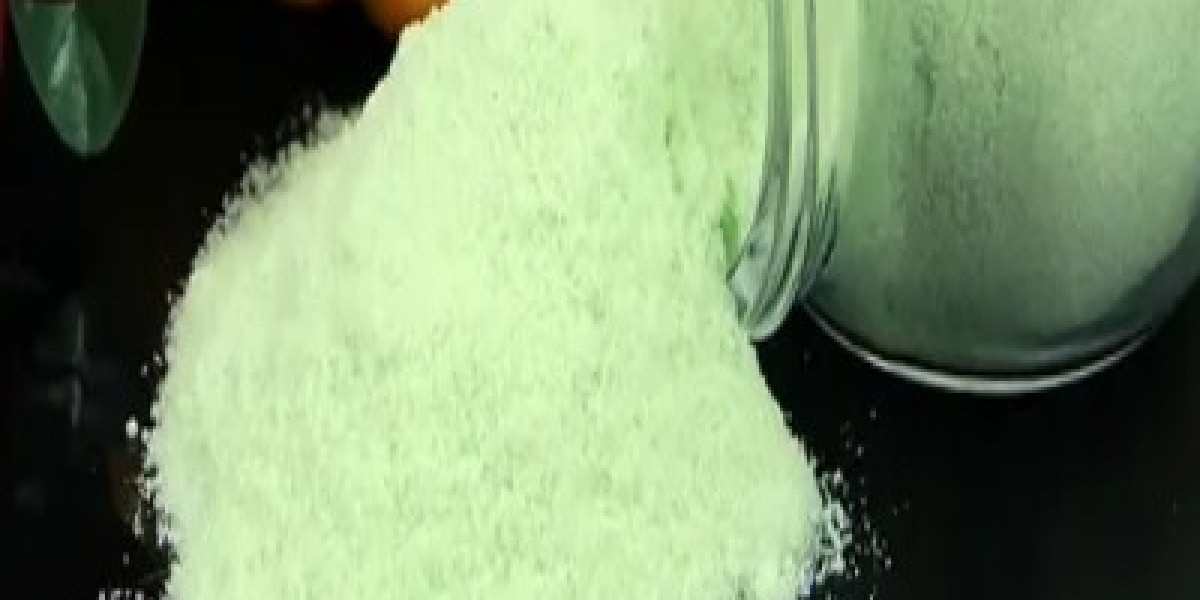Ferrous Sulfate: Its Chemical Properties and Uses
Ferrous sulfate, also known as iron(II) sulfate or ferrous sulfate heptahydrate, is a crucial chemical compound with widespread applications across multiple industries and medical fields. This essential iron salt appears as a pale green, crystalline substance that plays a significant role in various scientific and practical domains. Its molecular formula (FeSO4·7H2O) represents a hydrated form of iron sulfate that has numerous important characteristics and applications.
The Chemical Composition and Structural Characteristics of Ferrous Sulfate
The chemical structure of Ferrous Sulfate is complex and fascinating, consisting of iron and sulfate ions combined with water molecules. In its most common form, ferrous sulfate heptahydrate contains seven water molecules per molecule, which contributes to its distinctive crystalline appearance and physical properties. The compound typically appears as blue-green crystals or a fine powder, with a molecular weight of approximately 278.01 g/mol.
Scientists and researchers have extensively studied the molecular structure of ferrous sulfate, revealing its unique ability to interact with various biological and chemical systems. The compound's versatility stems from its ability to readily dissolve in water and participate in multiple chemical reactions, making it an invaluable substance in numerous scientific and industrial applications.
Medical and Pharmaceutical Applications of Ferrous Sulfate
One of the most important applications of ferrous sulfate is in the medical and pharmaceutical industries. Healthcare professionals widely use this compound as a primary treatment for iron-deficiency anemia, a condition characterized by low red blood cell count and insufficient hemoglobin production. The compound's ability to provide readily absorbable iron makes it an essential nutritional supplement for individuals experiencing iron deficiencies.
Medical practitioners frequently prescribe ferrous sulfate in various forms, including tablets, liquid solutions, and fortified food products. These formulations help patients effectively increase their iron intake and address potential nutritional gaps. The compound's effectiveness in treating anemia has been well-documented through extensive clinical research and medical studies.
Nutritional Supplements and Dietary Interventions
Ferrous sulfate plays a critical role in nutritional supplementation, particularly for populations at higher risk of iron deficiency. Pregnant women, vegetarians, athletes, and individuals with specific medical conditions often require additional iron supplementation to maintain optimal health. The compound's ability to be easily absorbed by the human body makes it an ideal choice for dietary interventions.
Food manufacturers frequently incorporate ferrous sulfate into various products to enhance their nutritional value. Cereals, bread, and other staple food items are often fortified with this compound to help prevent iron deficiency in large populations. This strategic approach to nutritional supplementation has proven effective in addressing widespread nutritional challenges.
Industrial and Manufacturing Applications
Beyond its medical uses, ferrous sulfate finds extensive applications in multiple industrial sectors. The compound is crucial in water treatment processes, where it serves as a key component in removing phosphates and other potentially harmful substances. Manufacturing facilities utilize ferrous sulfate in wastewater treatment plants to improve overall water quality and environmental safety.
The pigment and textile industries also rely on ferrous sulfate for various production processes. Its chemical properties make it an effective ingredient in creating specific colors and treatments for fabrics and materials. Additionally, the compound is used in metal surface treatments, helping to prevent corrosion and enhance the durability of various metal products.
Agricultural and Environmental Uses
Agricultural sectors extensively employ ferrous sulfate as a vital soil amendment and fertilizer. The compound helps address iron deficiencies in plants, promoting healthier crop growth and improved agricultural yields. Farmers and agricultural researchers recognize its significance in maintaining optimal soil nutrient balance and supporting plant health.
Environmental applications of ferrous sulfate include its use in controlling algae growth in water systems and as a reducing agent in various chemical processes. Its versatility and relatively low environmental impact make it an attractive solution for multiple ecological management strategies.
Safety Considerations and Handling Protocols
While ferrous sulfate offers numerous benefits, proper handling and administration are crucial. Medical professionals and industrial workers must follow specific safety guidelines when working with this compound. Potential side effects, such as gastrointestinal discomfort, can occur with improper use or excessive consumption.
Individuals taking ferrous sulfate supplements should consult healthcare professionals to determine appropriate dosages and minimize potential adverse reactions. Industrial workers must use appropriate personal protective equipment and follow established safety protocols when handling the compound in manufacturing or research settings.
Get more insights on, Ferrous Sulfate
Get This Report in Japanese Language: 硫酸第一鉄
Get This Report in Korean Language: 황산제철
About Author:
Ravina Pandya, Content Writer, has a strong foothold in the market research industry. She specializes in writing well-researched articles from different industries, including food and beverages, information and technology, healthcare, chemical and materials, etc. (https://www.linkedin.com/in/ravina-pandya-1a3984191)










